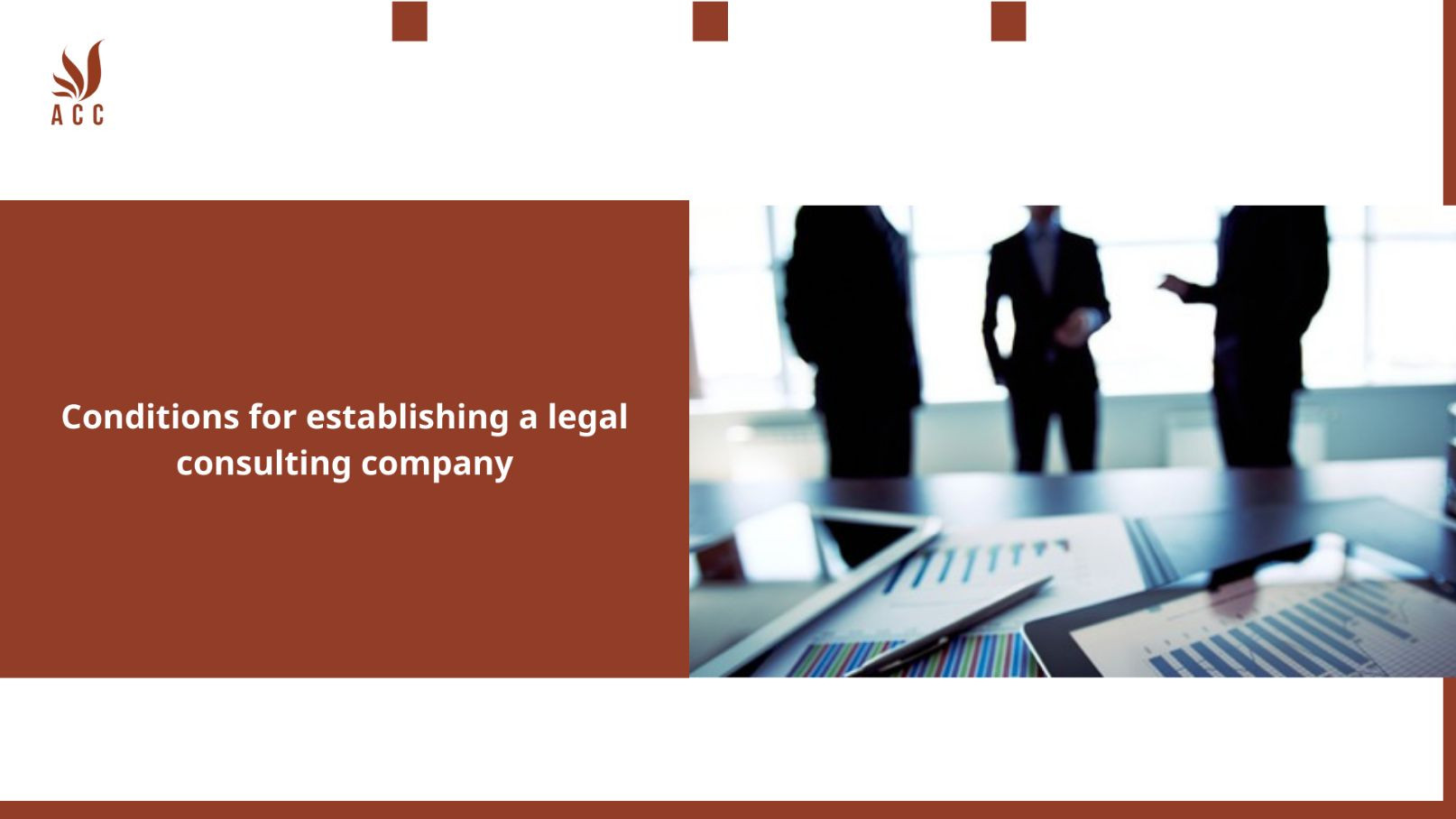1. Services Offered:
Define the specific legal consulting services you will offer. This may include providing legal research, contract drafting and review, regulatory compliance guidance, risk assessment, legal due diligence, dispute resolution support, or other customized services based on client needs.

Conditions for establishing a legal consulting company
2. Business Plan:
Develop a comprehensive business plan that outlines your company's goals, target market, marketing strategies, financial projections, and operational procedures. This will serve as a roadmap for your company's growth and success and will be required for obtaining necessary licenses and permits.
3. Licensing and Regulatory Compliance:
Research the licensing and regulatory requirements for legal consulting firms in your jurisdiction. Contact the relevant regulatory authority or professional body, such as the state bar association, to understand the specific requirements and application process.
4. Professional Indemnity Insurance:
Obtain professional indemnity insurance coverage to protect your company against potential liability claims arising from errors or omissions in your legal consulting services. This insurance is often a requirement for licensing and provides financial protection for your clients and your business.
5. Marketing and Networking:
Develop a marketing strategy to promote your legal consulting services. Utilize various channels, such as online presence, social media, professional networking, industry events, and partnerships with other legal firms or organizations, to reach your target audience and establish your brand.
6. Client Relationships:
Establish and maintain strong relationships with clients. This includes understanding their legal needs, providing tailored solutions, delivering high-quality services, and ensuring client satisfaction. Positive client testimonials and referrals will be crucial for building your reputation and attracting new clients.
7. Technology and Tools:
Invest in the necessary legal software, research tools, and other technology solutions to support your consulting operations. This may include legal research platforms, document management systems, secure communication tools, and project management software.
8. Continuous Learning and Improvement:
Stay updated with the latest legal developments, regulations, and best practices. Invest in continuous professional development to enhance your skills and knowledge, ensuring that you can provide clients with the most effective and up-to-date legal consulting services.
9. Q&A
What are the primary legal and regulatory conditions for establishing a legal consulting company?
Answer: Establishing a legal consulting company involves complying with specific legal and regulatory conditions, which can vary depending on your jurisdiction and the scope of your legal consulting services. Common requirements may include:
- Registering your business with the appropriate government authorities and obtaining the necessary permits or licenses.
- Complying with local, state, and federal laws that govern legal consulting and professional services.
- Adhering to ethical and professional standards set by legal professional organizations and bar associations.
- Ensuring that your legal consultants hold appropriate qualifications and licenses to practice law if applicable in your jurisdiction.
Do legal consultants in a legal consulting company need specific qualifications or certifications to offer their services?
Answer: Legal consultants may or may not need to hold specific qualifications or certifications, depending on the jurisdiction and the nature of their consulting services. In many cases, consultants may have law degrees (JDs) or other advanced degrees in legal fields. Additionally, certifications or memberships in relevant legal professional organizations can enhance their credibility and expertise.
How can a legal consulting company ensure the quality and integrity of its consulting services?
Answer: To ensure quality and integrity in legal consulting services:
- Employ experienced legal consultants with expertise in their respective areas of law.
- Develop a code of ethics and professional standards that guide consultants' conduct and client interactions.
- Conduct thorough research and analysis to provide accurate and well-informed legal advice to clients.
- Maintain attorney-client confidentiality and adhere to data protection and privacy regulations.
- Continuously update legal knowledge and stay current with changes in laws and regulations.
What insurance considerations should be kept in mind when establishing a legal consulting company?
Answer: Insurance considerations for a legal consulting company may include:
- Professional liability insurance (errors and omissions or E&O insurance) to protect against claims of professional errors or negligence in consulting services.
- General liability insurance to cover potential accidents or injuries that may occur on client premises or during consultations.
- Cybersecurity insurance to safeguard against data breaches and cyber threats, especially when handling sensitive client information.
Starting a legal consulting company involves careful attention to legal requirements, ethical standards, and quality consulting practices. It's essential to consult with legal, insurance, and business professionals who are experienced in the legal consulting industry to ensure full compliance with regulations and adherence to best practices in your consulting firm.
Nội dung bài viết:






Bình luận